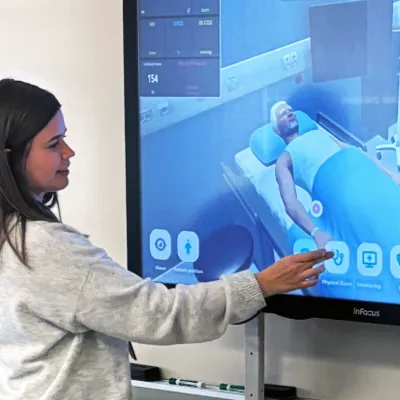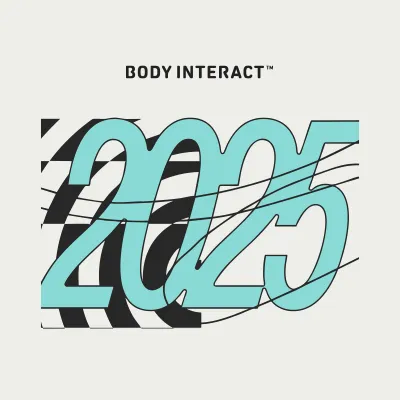Understanding Imposter Syndrome in Healthcare Simulation
Imposter syndrome can be characterized as the persistent feelings of self-doubt and a sense of intellectual fraudulence despite evident success and competence. It’s like feeling like a fraud despite evidence of your competence—it is an invisible but powerful challenge affecting many healthcare professionals and students [1,2].
Referring to recent studies, imposter syndrome is particularly prevalent in high-achieving fields like healthcare education. It’s tied to perfectionism, fear of failure, and a lack of confidence, often hitting hardest during training and early professional years.
A 2022 study published in Frontiers in Psychology found that imposter syndrome is common among health profession students, with higher rates among women and minority groups. Many report anxiety, burnout, and reduced motivation as a result. These feelings aren’t just psychological—they impact academic performance, career progression, and even patient care [2,3].
Another recent article in the International Journal of Healthcare Simulation (IJOhS) highlighted how simulation-based education, when psychologically safe and well-designed, offers an opportunity to reduce imposter feelings by improving confidence, competence, and reflective learning [1].
From Doubt to Decision-Making
The Simulation Solution for Healthcare Education
Simulation is more than just practice—it’s immersive learning. In a safe, virtual environment, learners can make clinical decisions, see the consequences, reflect on mistakes, and try again without risking patient safety.
This is where Body Interact – Virtual Patient Simulation comes in!
Body Interact offers a dynamic platform for current and future healthcare professionals to enhance their clinical reasoning and decision-making skills through interactive scenarios. Engaging with such simulation tools can be instrumental in combating imposter feelings in several ways.
How Body Interact Helps Tackle Imposter Syndrome
Let’s explore how Body Interact’s virtual patients support educators and students in overcoming feelings of self-doubt
1. Builds Confidence Through Repetition [3]
- Repeated exposure to patient scenarios helps reinforce knowledge and decision-making skills.
- The more clinical cases learners can handle, the more capable and confident they feel in their own abilities.
- Common clinical cases as well as rare conditions — so learners are prepared no matter how often (or rarely) they’ve encountered them in real life.
2. Encourages Reflection and Feedback
- After each scenario, you receive structured feedback on your decisions. This objective, nonjudgmental insight combats self-doubt often rooted in imposter feelings.
3. Promotes a safe space for learning
- You can make mistakes and learn from them without real-world consequences. This removes the pressure of being “perfect,” which fuels imposter syndrome.
4. Supports Peer and Mentor Interaction
- Body Interact can be used in group simulations, encouraging discussion and support from peers and educators, key factors in reducing isolation and self-doubt.
5. Focused on Clinical Reasoning, not Just Memorization
- Imposter syndrome often arises from the fear of being lucky rather than skilled, or feeling like you don’t truly understand the material. Simulations—especially Body Interact, with its physiologically based algorithms—challenge you to think critically rather than simply recall facts, helping to deepen and reinforce your knowledge.
Imposter syndrome isn’t a flaw—it’s a sign you care deeply about doing well in a high-stakes profession. But you don’t have to let it define your learning or career.
Implementing healthcare education tools like Body Interact can turn uncertainty into growth, doubt into confidence, and practice into performance. This characteristic may be crucial in ensuring the quality of care and effective patient advocacy.
The journey from feeling like a fraud to becoming a competent, self-assured clinician starts with one simulation at a time.
References
1. Freeman KJ, Houghton S, Carr SE, Nestel D. Impostor phenomenon in healthcare simulation educators. Int J Healthc Simul. 2022;1(1):34–40. doi:10.54531/zmtl172
2. Feltner, C., Weber, R. P., Stuebe, A., Grodensky, C. A., Orr, C., Viswanathan, M. (2021). Prevalence and Effects of Impostor Syndrome in Medical Students, Residents, and Attending Physicians: A Systematic Review. Journal of General Internal Medicine, 36(6), 1784–1794. https://doi.org/10.1007/s11606-020-06578-1
3. Peng Y, Xiao S-W, Tu H, Xiong X-Y, Ma Z-J, Xu W-J, et al. The impostor phenomenon among nursing students and nurses: a scoping review. Front Psychol. 2022;13:809031. doi:10.3389/fpsyg.2022.809031









